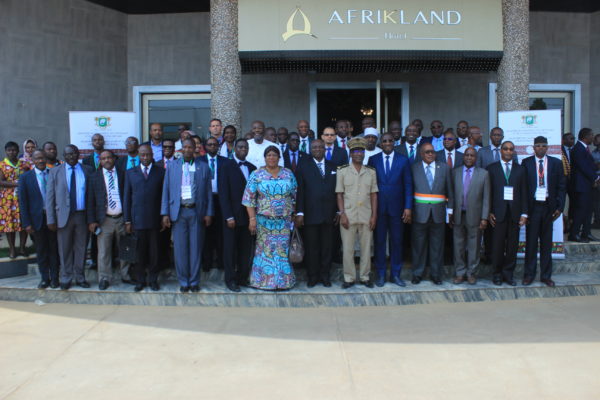The seaside town of Grand-Bassam hosts these 5 and 6 February the 57th General Assembly of the OPCW, the inter-African coffee organization, which brings together delegations of 25 countries of the continent under the theme: “Development of sustainable coffee growing for the emergence of the African economy “. At the heart of the debate, the revival of the coffee culture in Africa in a global context of supply deficit.
Africa wants to invest again in the coffee culture. After a development recorded since independence until the 1980 years, the coffee culture on the continent was the expense of falling prices of 1990 years.
“African coffee production has stagnated for more than 20 years and the share of the continent in the global supply has increased from 65% to 11 12% to date,” said Denis Sedieu, representative of the ICO (international organization coffee) at these meetings. According to WTO figures, of 1,3 million tons at the end of the 1980 years, African production has recorded a continuous decline to be around 900 000 tons today. And export earnings from coffee by the continent’s economies account for less than 10% of global revenue against 21% in 1990; a dry loss for the continent’s economies.
A global market lacking coffee
However, the new international context argues in favor of a renewed interest in speculation that was eventually abandoned in favor of other agricultural speculations considered more lucrative. “In 2015, the world consumption of coffee was around 9,12 million tons while the supply was 8,58 million tons,” said Souleymane Diarrassouba, the Ivorian Minister in charge of Trade. An important gap that offers a good margin of maneuver to the African States who find here an opportunity to put the sector back on track.
States must, however, work to remove many pitfalls: a population of aging planters, the abandonment of farmers’ management policies since the 1990 years, insufficient disclosure of the results of research that offers yet very high yielding plants. At this level, it is learned that the yield of coffee in Africa is estimated at 300 kg per hectare, about 10 times less than in the other producing regions of the world.
The context is favorable. The challenge for the Abidjan Foundation is therefore to formulate new strategies to effectively drive the revival of African coffee production, while ensuring that demand is maintained so as to avoid suffering the impact of falling prices again. .
Pending the conclusions of the work this Tuesday 6 February, several tracks are already mentioned. These include improving farmers’ incomes, encouraging local coffee consumption, as in Ethiopia, the continent’s largest coffee producer, which consumes 60% of its crop. It is also a question of finding a way to penetrate the Asian market a little more, China in particular. In addition, local processing is another challenge for integrating the coffee value chain.
According to estimates, the current market deficit appears to be structural: experts expect global coffee consumption of 10,6 million tonnes in 2020 compared with production of 8,6 million tonnes. The market therefore offers good prospects for 25 African coffee producing countries that will once again make the continent the preferred land for coffee growing.



